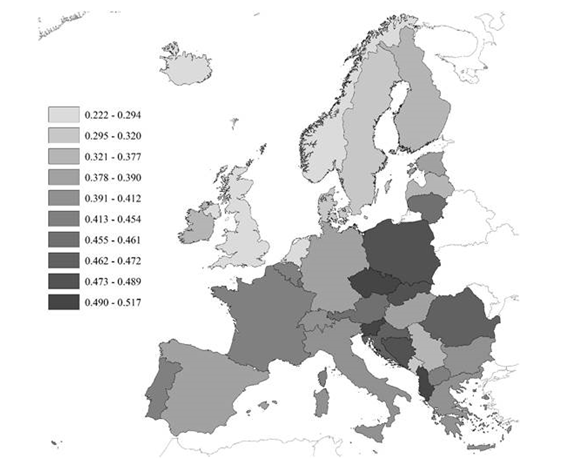Sample project
How do institutions shape urban sprawl?
In a comparative research study on urban sprawl in Europe, we look at the connection between institutional factors and the degree of urban sprawl. Urban sprawl describes here the increasing shift of economic activity away from city centers into less densely populated surrounding areas. Figure 1 illustrates the average degree of urban sprawl in Europe.
 Figure 1: Average degree of urban sprawl in Europe. Lighter shaded areas indicate a lower degree of average sprawl.
Figure 1: Average degree of urban sprawl in Europe. Lighter shaded areas indicate a lower degree of average sprawl.
Our results for the period of 1990 – 2912 show that there is significant variation between the countries, but that this variation is relatively stable in the observed time period. Urban sprawl is relatively pronounced in Central and Eastern Europe and comparably low in Northern Europe. In addition, we observe a negative correlation between the degree of urban sprawl and the growth rates of real housing prices. This suggests a trade-off between sprawl and low housing prices. In terms of the relevance of regional decentralization, it becomes evident that countries with a high degree of autonomy of local governing bodies have on average 25 to 30 percent more sprawl than more centrally organized countries.